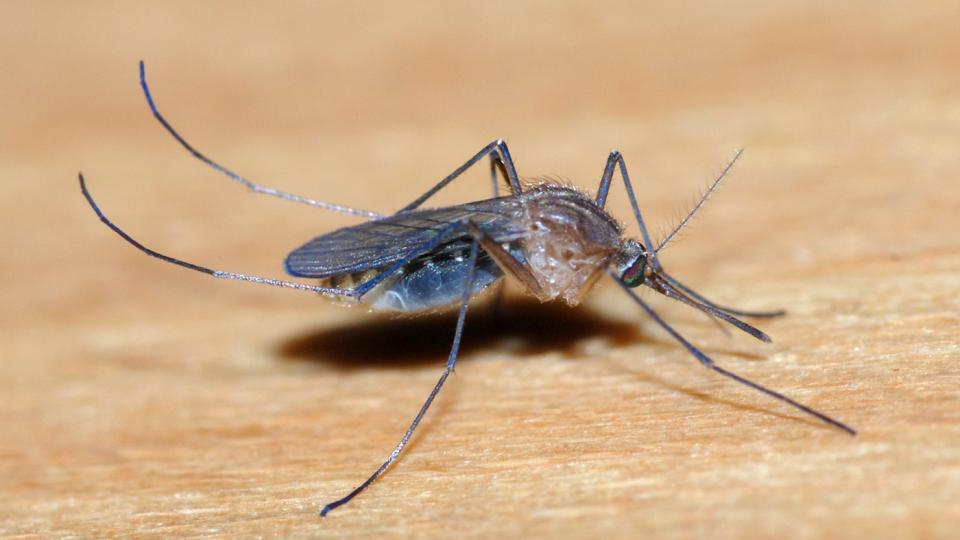The project is coordinated by IrsiCaixa and is part of the European research program Horizon-Europe.
The West Nile Virus uses mosquitoes as a vector for transmission, and there is currently no treatment or vaccine to tackle it in humans.
Girona, December 22, 2023 – HIPRA participates in a research project that aims to design therapies that limit the impact of the West Nile virus (WNV), an emerging pathogen for which there is currently no treatment or vaccine for use in humans. The project is coordinated by the IrsiCaixa AIDS Research Institute and funded by the European Union research program Horizon-Europe, with a total of 5.7 million euros.
The project also includes the participation of the University of Montpellier, the Technische Universität Braunschweig, the University of Copenhagen, the Center for Genomic Regulation (CRG), and the Barcelona Supercomputing Center - National Supercomputing Center (BSC-CNS). All research centers will work on the development of a safe and effective prophylactic vaccine against WNV that can induce a prolonged immune response over time and protect the entire population. Within the same project, called LWNVIVAT (from its English name Limiting West Nile Virus Impact by Novel Vaccines And Therapeutics Approaches), the scientific team will design, produce, and analyze the efficacy and therapeutic potential of specific antibodies for the virus, in addition to the vaccine.
The WNV, one of the most widespread pathogens in the world
The West Nile virus, one of the most widespread globally, uses mosquitoes as a vector for transmission and, although it usually has an asymptomatic course, 1% of cases develop a severe disease with involvement of the central nervous system that, in the long run, can end up causing death. In the case of immunocompromised people and people over 60 years of age, the fatality rate increases to 30%, which highlights the importance of finding a solution that protects vulnerable groups.
In Spain, the first cases of the disease were detected in 2010. Since then, several outbreaks have been identified throughout the country, one of them in Andalusia in 2020, which triggered 77 cases of meningitis, 8 of them fatal. Climate change favors the spread of viruses that are transmitted through mosquitoes, such as WNV. That is why it is essential to understand health from the perspective of One Health, which integrates the study of animal and environmental health in the approach to human health.
In search of a prophylactic vaccine
The main objective that the scientific team sets itself is to work on the design of a vaccine capable of preventing infection by all the genetic variants of WNV, and that offers protection to the entire population. With computer tools, a prediction can be made of which molecules could activate the immune system and generate specific antibodies against the virus to fight it. Once the molecules with the greatest potential have been identified, the next step is to produce them. To do this, the collaborating institutions of the project will use different strategies: recombinant proteins and virus-like particles (VLPs).
One of the advantages of recombinant proteins (molecules produced artificially in the laboratory) is that they can be easily generated in large quantities and economically. This is, therefore, a positive factor when it comes to transferring the vaccine to the clinic. On the other hand, VLPs are, as their name suggests, particles almost identical in structure and organization to viruses, but without infectious capacity. The research team wants to use these constructs as a vehicle for the molecules of interest, for them to induce an immune response in the human body. IrsiCaixa, leaders in HIV, already has a platform of vaccines based on VLPs that, with the knowledge and experience accumulated, can be adapted to the West Nile virus.
Refining the efficacy of the vaccine thanks to antibodies
However, the LWNVIVAT scientific team, made up of researchers from eight research centers in four different countries, will test the efficacy of the vaccine and the antibodies produced. In parallel to the vaccine, work will also be done on the design of antibodies that can be used as treatment for WNV. When designing them, the antibodies that are produced when receiving the vaccine will be analyzed, as they will allow identifying new points of interest of the virus and, therefore, refining the response induced by the vaccine. The production of these highly specific antibodies would allow them to be administered for both therapeutic and preventive purposes to prevent new infections in the most vulnerable groups in the geographical areas where there are WNV outbreaks.
WNV belongs to the flavivirus family, which also includes the dengue, Zika, and yellow fever viruses, among others. Accumulating knowledge about WNV would not only allow the development of treatment strategies against this virus, but also provide the necessary tools to tackle other viruses in the same family.
